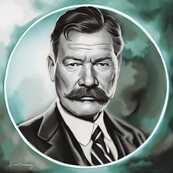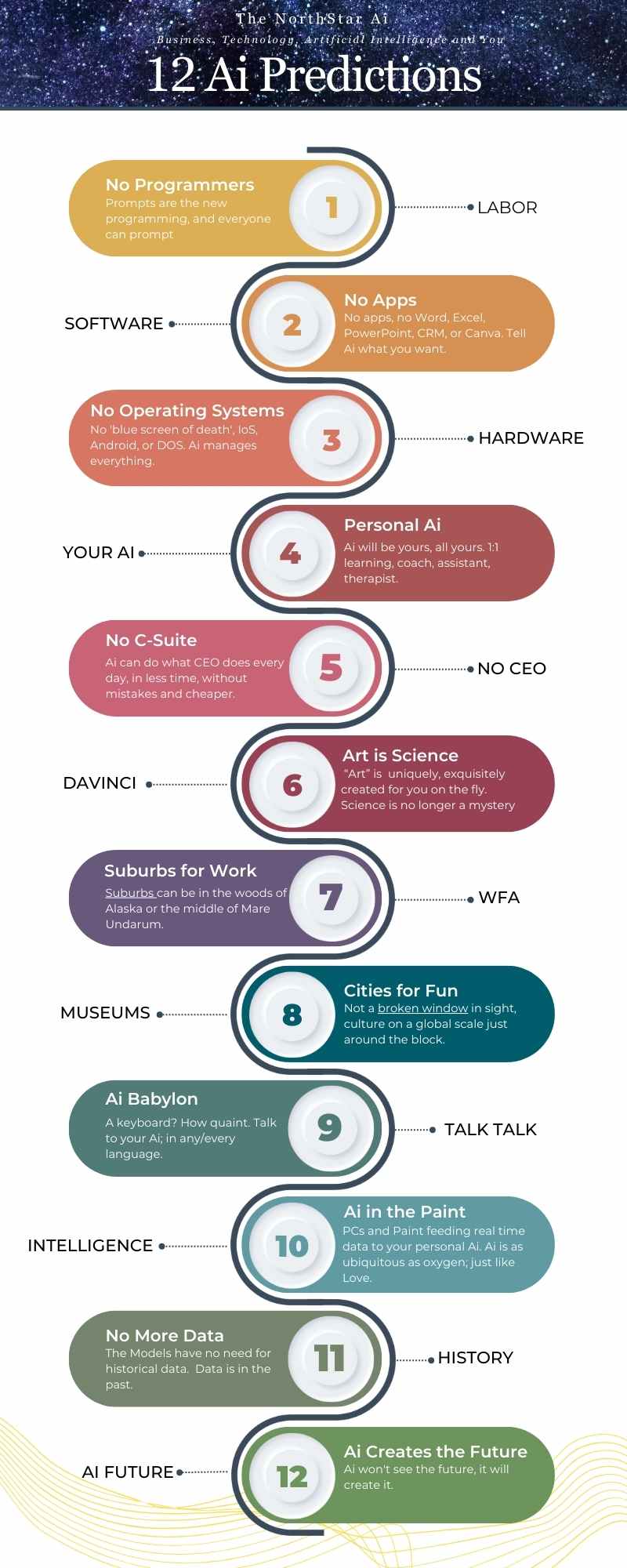|
From Shakespeare to Chatbots: The Bard would've been an AI enthusiast Robert G. Jordan
The streets of New York have long been a source of inspiration for artists and writers. From the tales of F. Scott Fitzgerald to the poems of Langston Hughes, this city has birthed countless stories. But now, it's playing host to a new kind of narrative. In the sprawling server rooms and sleek offices of tech companies like Meta, literature is being fed into machines, not for the purpose of digitization, but for understanding.
The recent lawsuit against Meta might have ruffled a few feathers in the literary world, but for those at the forefront of the AI revolution, it's a mere distraction. A futile attempt to halt the inevitable march of progress. Because, you see, using books to train AI isn't theft; it's evolution. It's a rite of passage. Just as Clara, our writer in the café, internalizes what she reads, molding it with her own experiences and insights to produce something uniquely hers, AI uses these literary works as stepping stones towards greater understanding. The debate around "fair use" has been thrust into the limelight, with critics decrying the use of copyrighted material for AI training. But step back for a moment and think. In a world where information is as ubiquitous as the air we breathe, isn't content more of a resource than a commodity? The true magic lies not in the words themselves but in the myriad ways they can be interpreted, reshaped, and built upon.
As the sun sets, casting long shadows on the city's skyline, the tech world is abuzz with possibilities. The promise of an AI-driven future, where knowledge is democratized, and innovation knows no bounds. But for this dream to be realized, we must let go of our old-world notions of intellectual property. We must embrace the digital renaissance. Upwards of 170,000 books, the majority published in the past 20 years, are in LLaMA’s training data. In addition to work by Silverman, Kadrey, and Golden, nonfiction by Michael Pollan, Rebecca Solnit, and Jon Krakauer is being used, as are thrillers by James Patterson and Stephen King and other fiction by George Saunders, Zadie Smith, and Junot Díaz." In the café, as Clara closes her book and gazes out of the window, she's not just looking at the city. She's looking at the future. A future where her words, and those of countless others, will not just be read by people but will form the bedrock of machines' understanding. And in that future, she sees hope, promise, and endless possibilities.
But what does this future hold? Imagine a world where AI, trained on the best of human literature, aids writers in crafting even more compelling narratives. A world where students learning a new language have real-time conversations with AI, which guides them using the wisdom of literary masters. The possibilities are as vast as the universe of books themselves. Reisner, "The future promised by AI is written with stolen words." As the sun sets, casting long shadows on the city's skyline, the tech world is abuzz with possibilities. The promise of an AI-driven future, where knowledge is democratized, and innovation knows no bounds. But for this dream to be realized, we must let go of our old-world notions of intellectual property. We must embrace the digital renaissance.
In the café, as the writer closes her book and gazes out of the window, she's not just looking at the city. She's looking at the future. A future where her words, and those of countless others, will not just be read by people but will form the bedrock of machines' understanding. And in that future, she sees hope, promise, and endless possibilities.
In the end, this is more than just a story about books and algorithms. It's a reflection on the very nature of learning, creativity, and progress. It's a call to look beyond the horizon and envision a world where boundaries between disciplines blur, giving rise to innovations that we can't even fathom today.
The digital renaissance is upon us. And as the lines between the written word and coded algorithms continue to blur, one thing becomes clear: the future of AI, much like literature, is bound only by the limits of our imagination. Basic Source Information: Title: REVEALED: THE AUTHORS WHOSE PIRATED BOOKS ARE POWERING GENERATIVE AI Source: The Atlantic Date: August 19, 2023 URL: Link to the Article Author: Alex Reisner Summary: In a groundbreaking revelation, Alex Reisner of The Atlantic uncovers the extensive use of copyrighted literary works in training generative AI models. Notable authors like Stephen King, Zadie Smith, and Michael Pollan find their creations among the vast datasets fueling AI's understanding. The heart of the debate centers on the ethics and legality of such practices. While some view this as a violation of intellectual property, others argue for the broader benefits of AI's evolution. Reisner quotes, "The future promised by AI is written with stolen words." Another poignant statement from the article reads, "Pirated books are being used as inputs for computer programs that are changing how we read, learn, and communicate." The piece serves as a reflection on the intersections of technology, literature, and the ever-evolving landscape of intellectual property in the digital age. Tweet: "Embracing the #DigitalRenaissance: Dive into a world where literature meets AI, and discover the boundless potential of the digital age. 📚💡🤖 #AIandLiterature #FutureIsNow" SEO-based Title: "Digital Renaissance: Literature's Role in Shaping the AI Revolution" SEO Post Description: "Explore the intersection of classic literature and cutting-edge AI. Discover how the words of literary giants are fueling the next tech revolution." LinkedIn Introduction Paragraph: "As we stand on the cusp of an AI-driven era, literature plays an unexpected yet pivotal role. Dive into our latest piece, where we explore the profound impact of classic literature on the evolution of artificial intelligence." Keyword List: Digital Renaissance, AI evolution, literature in tech, Meta, copyright debate, generative algorithms, literary journalism, tech revolution, knowledge democratization Ideal Image Description: A juxtaposed image featuring a classic writer's desk with a typewriter, ink, and parchment on one side, and a modern workspace with a computer, AI diagrams, and digital code on the other, symbolizing the blend of literature and technology. Search Question: "How is classic literature influencing the development of modern AI?" Title:"Words to Code: The Literary Backbone of the AI Epoch" Funny Tagline: "From Shakespeare to Chatbots: The Bard would've been an AI enthusiast!" Song Suggestion: "End of the Line" by The Traveling Wilburys - A song about embracing change and moving forward, which resonates with the theme of transitioning from traditional literature to a digital future. Quotes
0 Comments
Your comment will be posted after it is approved.
Leave a Reply. |
Topics & Writers
All
AuthorsGreg Walters Archives
July 2024
|



